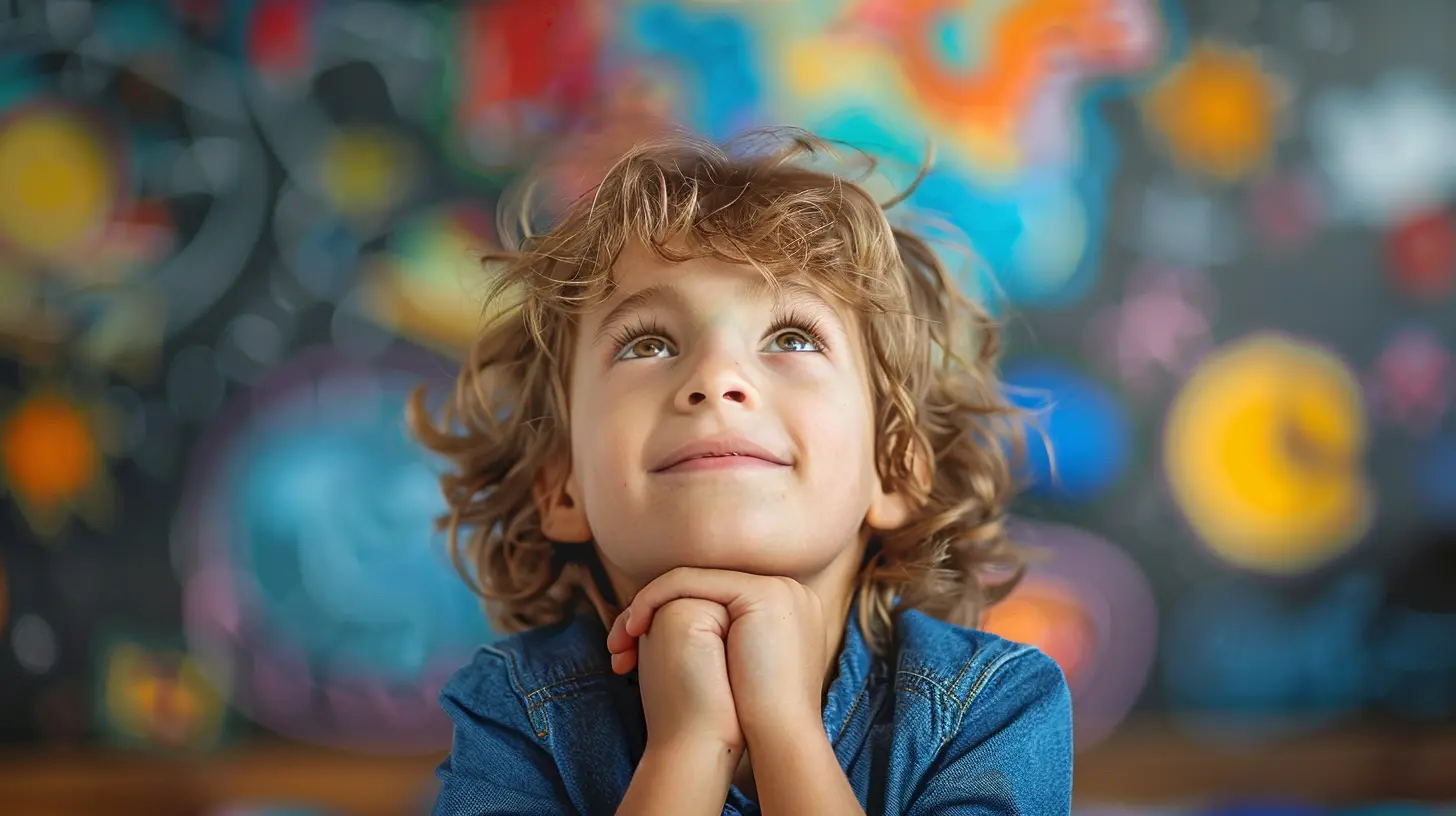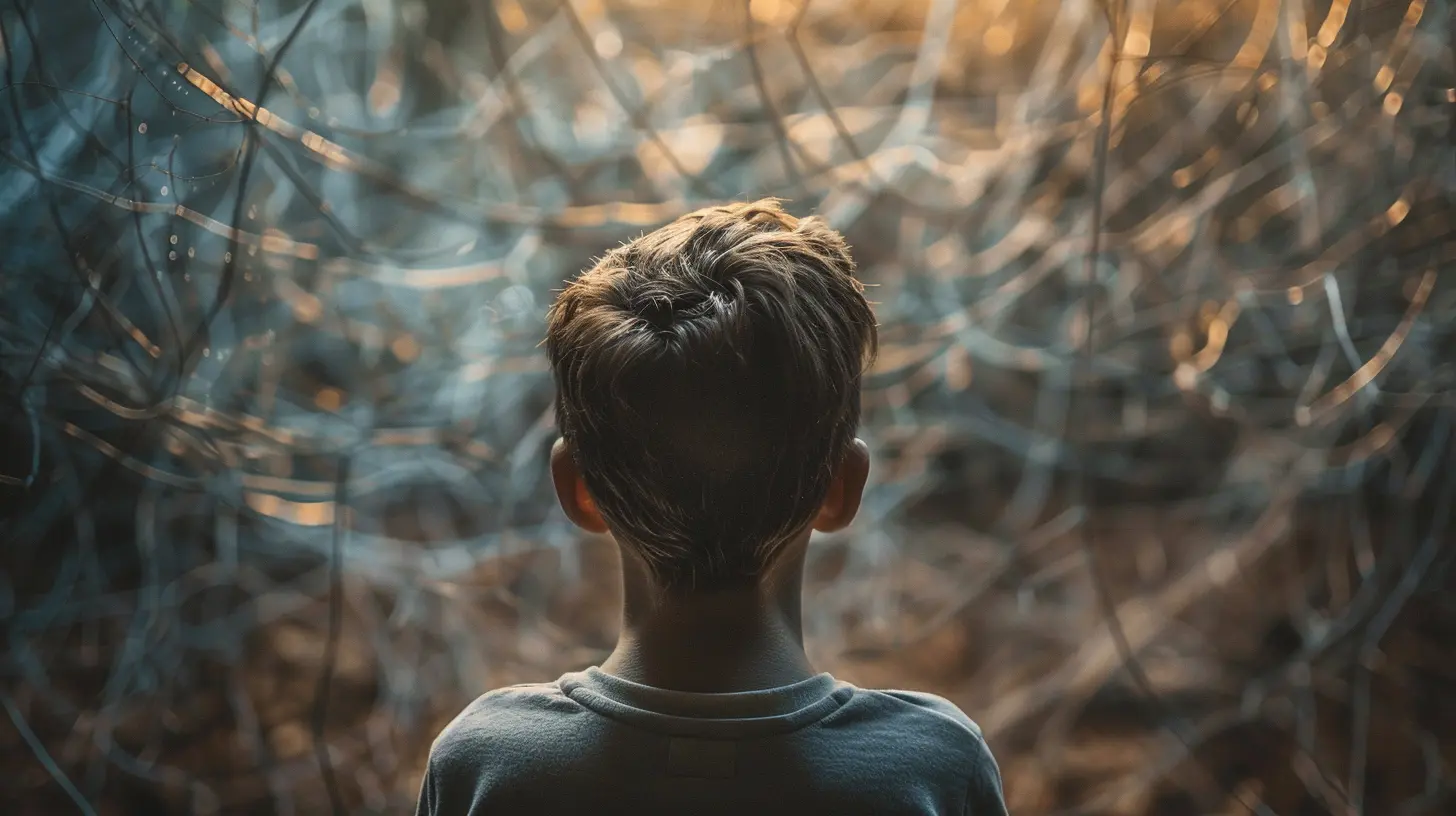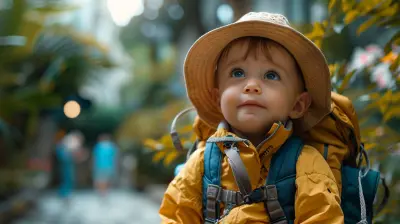Intentional Parenting: Hacks for Raising Mindful Kids
9 October 2025
Parenting isn’t just about keeping your kids safe and fed—it’s about raising thoughtful, kind, and self-aware individuals. That’s where intentional parenting comes in.
Ever feel like you’re just going through the motions with your kids—shuttling them from one activity to the next, breaking up sibling fights, and managing tantrums? If so, intentional parenting might be your game-changer. It’s all about raising kids on purpose, with mindfulness and heart.
So, how do you do it? Let’s dive into some simple and effective hacks to help you raise mindful, emotionally intelligent kids.

What Is Intentional Parenting?
Intentional parenting means making conscious choices about how you raise your children, rather than just reacting to situations as they come. It’s about being present, fostering emotional awareness, and guiding your kids with purpose.In a world filled with distractions (hello, smartphones and endless to-do lists), being an intentional parent takes effort—but the rewards are so worth it.

Why Intentional Parenting Matters
Raising kids is tough. Without a clear approach, it’s easy to fall into autopilot mode. But when you’re intentional, you:- Teach kids emotional regulation
- Foster deeper connections
- Encourage critical thinking
- Model respect and kindness
- Raise independent, mindful children
Now, let’s talk about how to do it! 
Hacks for Raising Mindful Kids
1. Prioritize Quality Time Over Quantity
It’s not about how much time you spend with your kids—it’s how you spend it.✅ Put your phone down and really be with them.
✅ Have heart-to-heart conversations during dinner.
✅ Engage in meaningful activities like reading, crafting, or even cooking together.
Even 15 minutes of undivided attention can make a world of difference!
2. Teach Emotional Awareness
Kids experience big emotions, and they need help understanding them.Here’s how you can guide them:
- Name their feelings: “I see you're frustrated because your tower fell down.”
- Validate their emotions: “It’s okay to feel disappointed. I feel that way sometimes too.”
- Give them tools: Teach deep-breathing exercises or calming techniques.
Emotional intelligence takes practice, so be patient!
3. Encourage Open Communication
Your child should feel comfortable talking to you about anything.🔹 Be a good listener—sometimes they just need to vent.
🔹 Avoid judging or jumping in with solutions right away.
🔹 Ask open-ended questions like, “How did that make you feel?”
When kids know their thoughts matter, they develop confidence and trust.
4. Model the Behavior You Want to See
Kids are sponges—they absorb everything, especially how you act.If you want mindful kids, you need to be mindful yourself.
- Practice patience and kindness (even when you're running late).
- Show gratitude—let them see you say “thank you” often.
- Demonstrate self-care—take breaks, set boundaries, and manage stress in healthy ways.
Basically, if you want honest, kind, and respectful children, you need to be honest, kind, and respectful first.
5. Create a Calm and Mindful Environment
A cluttered, chaotic space can lead to a cluttered, chaotic mind.🌱 Declutter your home—a tidy, peaceful space promotes calmness.
📵 Limit screen time—encourage breaks from technology.
🎶 Play soothing music—soft tunes can enhance focus and relaxation.
Your home sets the stage for mindfulness—make it a place of peace!
6. Encourage Gratitude Daily
Teaching kids gratitude may be one of the most important lessons in raising mindful children.Try this:
- Have a “gratitude jar” where they write down things they’re thankful for.
- Ask, “What was the best part of your day?” during bedtime.
- Encourage them to express appreciation to others.
A grateful heart leads to a positive, mindful mindset!
7. Slow Down—It’s Okay to Say No
The modern parenting trap? Overscheduling.Between school, sports, music lessons, and playdates, kids barely have time to breathe.
It’s okay to:
✔ Skip an activity if it feels like too much.
✔ Allow boredom—it sparks creativity!
✔ Have unscheduled downtime as a family.
Mindfulness thrives in slow, intentional moments.
8. Teach Deep Breathing and Relaxation Techniques
Mindfulness starts with being present in the moment. Show your kids how to pause and breathe.Simple techniques:
- Belly breathing: Place a hand on their tummy and feel it rise and fall.
- 5-4-3-2-1 grounding technique: Identify 5 things they see, 4 they can touch, 3 they hear, 2 they smell, and 1 they taste.
These small practices can help kids handle stress in a healthy way.
9. Encourage Outdoor Play and Connection with Nature
Nature and mindfulness go hand in hand.🌿 Take walks together.
🌞 Let them play outside without structured activities.
🐞 Encourage curiosity—observe bugs, collect leaves, and just be in nature.
Fresh air does wonders for a child’s emotional well-being!
10. Lead with Empathy, Not Control
It’s easy to fall into the trap of commanding kids instead of guiding them.Instead of:
❌ “Because I said so.”
Try:
✅ “I understand this is hard for you. Let’s talk about it.”
When kids feel heard, they’re more likely to respect your guidance.
11. Make Mindfulness Fun!
Mindfulness doesn’t have to be all serious—it can be playful too!- Introduce kids' yoga (plenty of fun animal poses to try).
- Play mindful listening games (ring a bell and have them listen until they no longer hear the sound).
- Try mindful coloring—focusing on colors and textures helps kids stay present.
Turn mindfulness into a fun daily habit! 
Final Thoughts on Intentional Parenting
Raising mindful kids doesn’t mean being a perfect parent—it just means being a present one.Intentional parenting isn’t about having all the answers. It’s about creating a home where your kids feel heard, valued, and encouraged to grow into thoughtful, self-aware humans.
So take a deep breath, slow down a little, and embrace the journey. Your kids will thank you for it—maybe not today, but someday.
all images in this post were generated using AI tools
Category:
Parenting HacksAuthor:

Karen Hurst
Discussion
rate this article
1 comments
Romina Cain
Intentional parenting can transform family dynamics. Simple hacks, like daily mindfulness practices and open communication, help cultivate emotional awareness and resilience in children. Embrace the journey!
October 18, 2025 at 3:15 AM

Karen Hurst
Thank you for highlighting the importance of intentional parenting! Mindfulness and open communication truly are key to fostering emotional resilience in children. Embracing this journey can indeed transform family dynamics!


